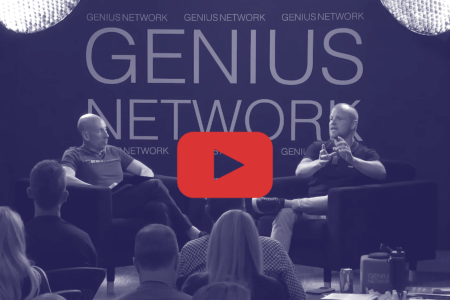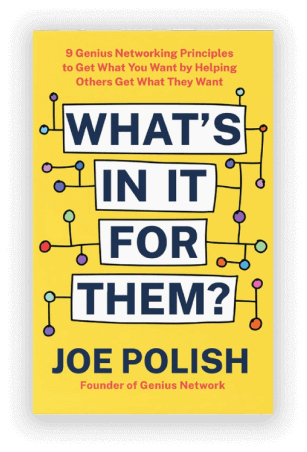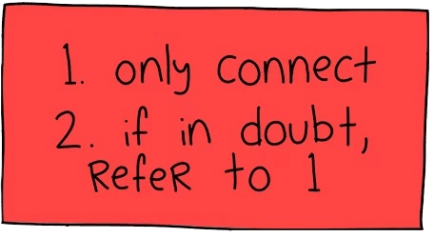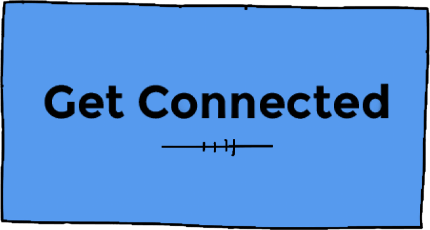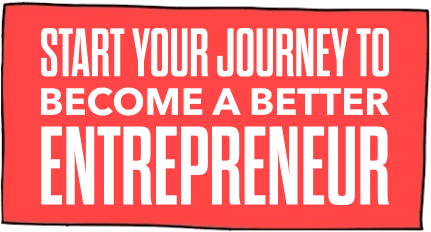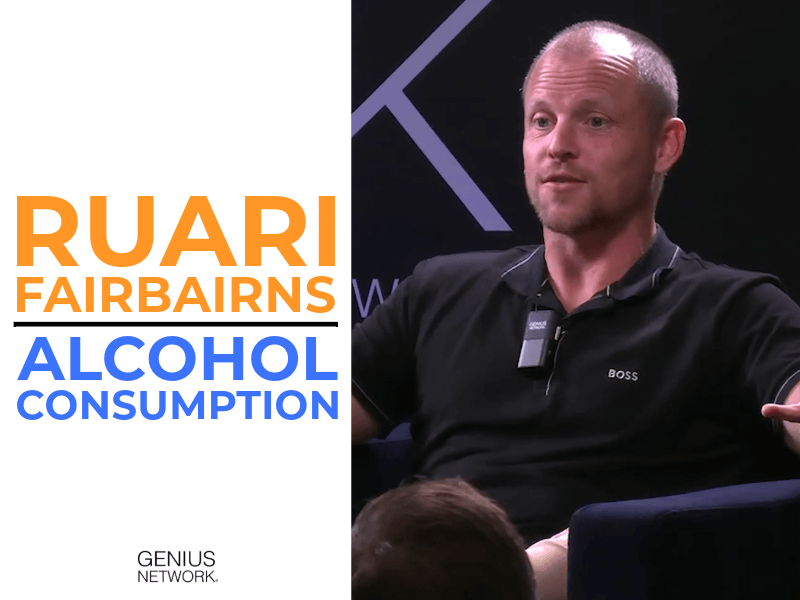
One Year No Beer: Reshaping Your Relationship with Alcohol (A Conversation with Ruari Fairbairns and Joe Polish) #210
Episode Summary
In this episode, Joe Polish interviews Ruari Fairbairns, Founder of One Year No Beer, who shares insights on the pervasive impact of alcohol, the alcohol industry’s influence, and the link between alcohol, trauma, and mental health.
Here’s a glance at what you’ll discover from Ruari in this episode:
- Discover Ruari Fairbairns’ revolutionary approach to breaking the booze habit that’s turned skeptics into believers across 137 countries (PLUS: The story of the global movement “One Year No Beer” that’s saving lives one sip at a time.)
- The link between trauma, stress, and drinking habits. (Ruari explains how addressing these deeper issues can lead to more effective recovery.)
- Technology Meets Temperance: An innovative technology that monitors your central nervous system to help you understand and manage your stress and drinking triggers.
- What if stopping wasn’t about quitting, but changing? Ruari flips the script on sobriety with strategies that replace harmful habits with powerful new ones. (Dive into the method that makes the journey from addiction to recovery both successful and sustainable.)
- Beyond Sobriety: Ruari challenges the traditional narratives of addiction recovery, advocating for a new approach that addresses the root causes of alcohol dependence.
- Exposing the myths peddled by billion-dollar booze businesses (and why 2 simple words have led more people to drinking problems than almost anything else…)
- What could giving up alcohol do for your brain and body? Ruari unpacks the startling health benefits of sobriety—improved mental clarity, enhanced physical health, and overall vitality. Discover why less alcohol means more life!
- Learn how Ruari’s research with Stirling University is uncovering the shocking impact of peer pressure on drinking habits, especially among professional women in London.
- Ruari shares how you can rethink your relationship with alcohol, offering practical tips for a healthier, happier, and more productive life.
- Ruari shares his ambitious plans to take “One Year No Beer” beyond a challenge to a comprehensive educational and research initiative, set to redefine health and happiness.
If you’d like to join world-renowned Entrepreneurs at the next Genius Network Event or want to learn more about Genius Network, go to www.GeniusNetwork.com.
WHAT'S IN IT FOR THEM?
Get the first chapter for FREE and a limited-time viewing of "Connected: The Joe Polish Story"
Show Notes
The Societal View of Alcohol:
- Ruari and Joe discuss how alcohol is commonly viewed in society, with most people not recognizing the subtle yet pervasive influence of alcohol on their lives.
- Ruari emphasizes that the question isn’t whether someone is an addict but rather whether alcohol is causing problems in their life, even if they only drink a couple of times a week.
The Alcohol Industry’s Influence:
- The conversation dives into the alcohol industry’s role in misrepresenting the truth about alcohol, comparing it to how the tobacco industry once misled the public about cigarettes.
- Ruari highlights that much of the research promoting “moderation” is funded by the alcohol industry, which profits heavily from problematic drinking.
Impact of Alcohol on Health:
- Alcohol is identified as a neurotoxin, with Ruari explaining its detrimental effects on the brain, sleep, and overall mental health.
- He shares how alcohol exacerbates issues like sleep deprivation, stress, and trauma, creating a vicious cycle of dependency.
The Role of Peer Pressure:
- Ruari presents findings from a study conducted with Stirling University, revealing that peer pressure is a significant factor in why people continue to drink.
- The discussion focuses on how societal norms, like “mommy wine time” and celebratory drinking, reinforce unhealthy drinking habits, particularly among women in high-pressure environments.
Trauma and Its Connection to Alcoholism:
- The episode explores how unresolved trauma can lead to addictive behaviors and how many people use alcohol to numb the pain from past experiences.
- Ruari introduces the idea that our central nervous system, affected by trauma, dictates how we handle stress and that alcohol further disrupts this balance.
The Importance of Meaning and Purpose:
- Ruari shares a personal story about how meeting the Dalai Lama led him to realize the importance of meaning and purpose in life, which significantly influenced his decision to leave his lucrative oil broker career.
- The conversation touches on how a lack of meaning and purpose can drive compulsive behavior, including alcohol dependency.
Debunking the Myth of Alcohol’s Health Benefits:
- Joe and Ruari debunk the common myth that alcohol has health benefits, with Ruari stating unequivocally that there are no health benefits to drinking alcohol.
- They discuss how studies that claim otherwise are often influenced by those with a vested interest in promoting alcohol.
Practical Steps for Reducing Alcohol Consumption:
- Ruari suggests that people should start by taking a break from alcohol to see how it affects their health and well-being.
- He talks about the importance of creating inclusive environments where not drinking is as accepted as drinking and how business leaders can play a role in this cultural shift.
The Future of Alcohol-Free Living:
- Ruari expresses hope that more people will begin to question their relationship with alcohol and consider the benefits of reducing or eliminating it from their lives.
- Joe reflects on how this message is especially relevant for Entrepreneurs and business leaders who often turn to alcohol to cope with the pressures of their roles.
Preventative Healthcare and the Role of Alcohol:
- Ruari emphasizes the importance of preventative healthcare, advocating for interventions that address issues like alcohol dependency before they become severe.
- The significance of addressing hangovers as an early indicator of a problematic relationship with alcohol, using data to show the physiological effects of drinking.
Stress as a Catalyst for Compulsive Behavior:
- Joe and Ruari discuss how stress often leads to compulsive behaviors, such as alcohol consumption, which people use to cope with underlying emotional pain.
- Ruari challenges the traditional disease model of addiction, suggesting that addiction is a solution to deeper problems rather than the root issue itself.
The Impact of Alcohol on Productivity:
- Ruari shares insights from his work with business owners, noting that many top performers operate at only a fraction of their potential due to the effects of alcohol.
- A striking example is given of a UK entrepreneur who realized he had been operating at 80% capacity for a decade due to alcohol’s impact, costing him millions.
The Incongruence in Health and Longevity Sectors:
- Joe reflects on the contradiction he observes at health and longevity events, where even those advocating for wellness often engage in heavy drinking.
- Ruari agrees, noting that alcohol is deeply ingrained in many social and professional environments, even among those who should know better.
The Alcohol Industry and Functional Drinks:
- Ruari discusses the potential for the alcohol industry to pivot towards developing functional, healthier alternatives to traditional alcoholic beverages.
- He mentions Professor David Nutt’s development of Alcorel, a synthetic alcohol designed to mimic the benefits of drinking without the negative consequences.
Tools and Strategies for Managing Stress:
- Ruari introduces several tools and techniques for managing stress, including the Muse headset for meditation, vagal nerve stimulation devices like Neurosim and Pulsetto, and simple breathwork exercises.
- He emphasizes the importance of these tools in reducing reliance on alcohol as a coping mechanism.
The Critical Role of Sleep:
- The conversation shifts to the impact of alcohol on sleep, with Ruari highlighting how alcohol severely disrupts sleep patterns, leading to a range of health problems.
- Practical tips are provided for improving sleep quality, such as cooling the room, adjusting bedding, and incorporating morning exercise.
The Future of Alcohol-Free Living:
- Ruari expresses optimism about the growing momentum of the alcohol-free movement, despite the global increase in alcohol consumption.
- He advocates for a realistic approach to reducing alcohol intake, focusing on moderation and mindful drinking rather than total abstinence.
Changing the Conversation Around Alcohol:
- Ruari encourages a shift in messaging to meet people where they are, suggesting that small, manageable changes in drinking habits can have a significant impact on health and well-being.
- He stresses the importance of creating inclusive environments in workplaces and social
- settings where not drinking is normalized.
RESOURCES
One Year No Beer (OYNB)
A program Founded by Ruari Fairbairns to support individuals in taking a break from alcohol and transforming their relationship with drinking.
Website: One Year No Beer
Muse Headset
A brain-sensing headband that helps with meditation by providing real-time feedback on brain activity.
Website: Muse Headband
Pulsetto
A device that clips onto the neck to stimulate the vagus nerve, helping to calm the central nervous system.
Information: Pulsetto Device
Physiological Sigh
A breathing technique involving two inhales followed by a long exhale, effective for reducing stress and calming the nervous system.
Learn More: Physiological Sigh Technique
Eight Sleep
A smart mattress that regulates temperature to enhance sleep quality, suitable for individuals looking to improve their sleep environment.
Website: Eight Sleep
Professor David Nutt – Alcarelle
A synthetic alcohol alternative developed to mimic the effects of alcohol without the negative consequences, aiming to provide a healthier option for social drinking.
Learn More: Alcarelle Project
Dr. Rajita Sinha
A leading researcher in stress and addiction, advocating for a shift in focus from addiction to stress management.
Research: Yale Stress Center
Vagal Nerve Stimulation (VNS)
A therapy technique involving the stimulation of the vagus nerve to promote relaxation and reduce stress.
Learn More: Vagal Nerve Stimulation Overview

